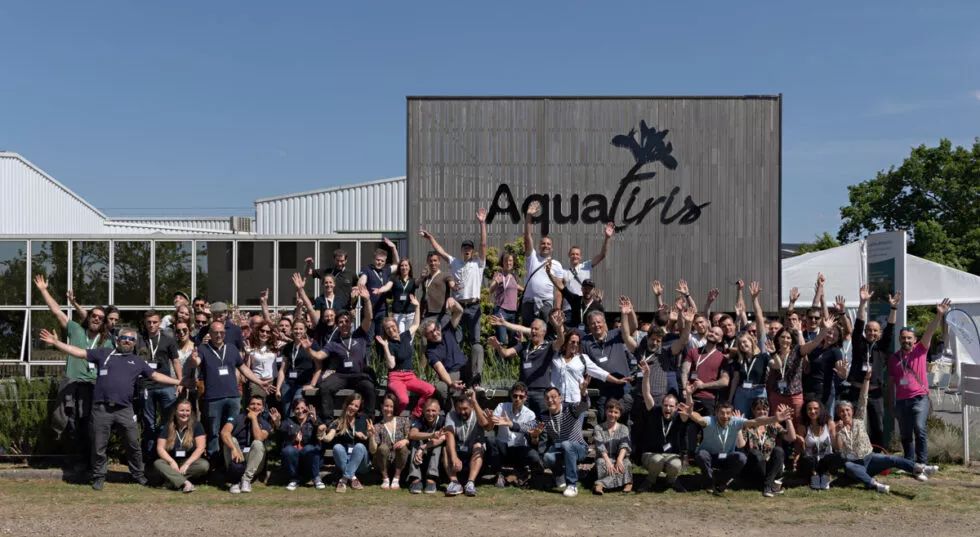About us
Mission of an innovative company: leader in the ecological transition in water management

Since its creation, Aquatiris has been convinced that a company must embody values and meaning, be committed to fulfilling its mission, ensure the well-being of its ecosystem and reduce its impact on the environment. The sustainable management of water resources is crucial for the future of our planet, and Aquatiris, aware of this challenge, guides each actor towards an ecological transition in favour of responsible water management, committing to promoting this cause at all levels.
Environmentally friendly solution to the challenges of the 2030 Agenda
Aquatiris embodies a deep environmental commitment thanks to the treatment of wastewater with plants, including its flagship product, the Sanitation Garden. Combining hardiness, aesthetics and efficiency, this garden appeals to those concerned with preserving the biodiversity of wetlands. By making use of wastewater, it helps to preserve green spaces, promotes islands of coolness even in periods of drought and reduces the carbon impact of housing. This innovation is in line with the sixth objective of the United Nations programme for sustainable development, and Aquatiris contributes to this challenge of achieving universal access to hygiene and sanitation by 2030.
Innovation, the driving force: the Aquatiris Research and Development centre
Aquatiris owes its success to a policy of constant innovation, driven by its Research and Development (R&D) centre. The innovation centre is dedicated to the development and improvement of wastewater treatment processes using plants and the reuse of wastewater. Supported by a team of researchers and equipped with cutting-edge expertise, this centre is at the forefront of innovation in the field. The synergy of the teams enables continuous innovation, offering high-quality wastewater treatment solutions that are perfectly tailored to customer needs.
The zero-tank, zero-emptying project
Freeing itself from the constraints of traditional sanitation, phyto-purification combines the beauty of a garden integrated into the landscape with the performance of a completely ecological and autonomous purification process.
This alternative was inspired by wetlands: water, minerals (pebbles) and a living medium (plant roots). The (good) bacteria and microfauna present in this ecosystem are able to treat and purify all the wastewater discharged by the home, without a tank or odour, in a way that is completely effective and environmentally sound.

